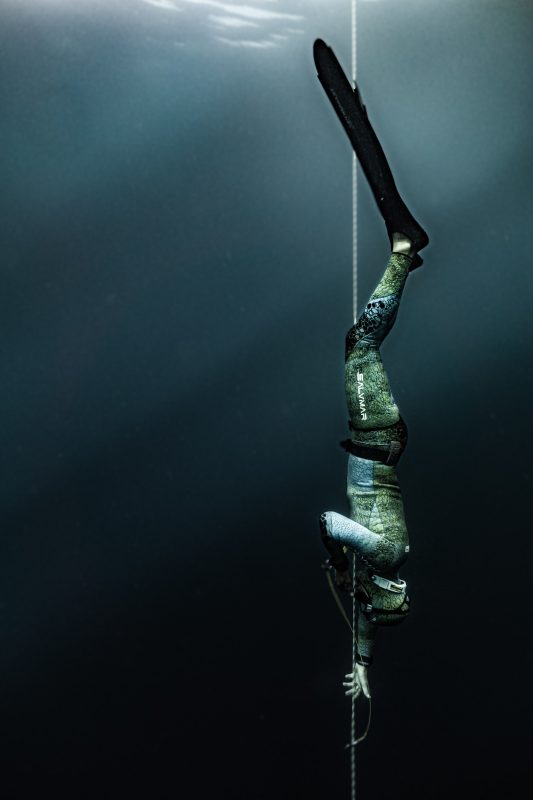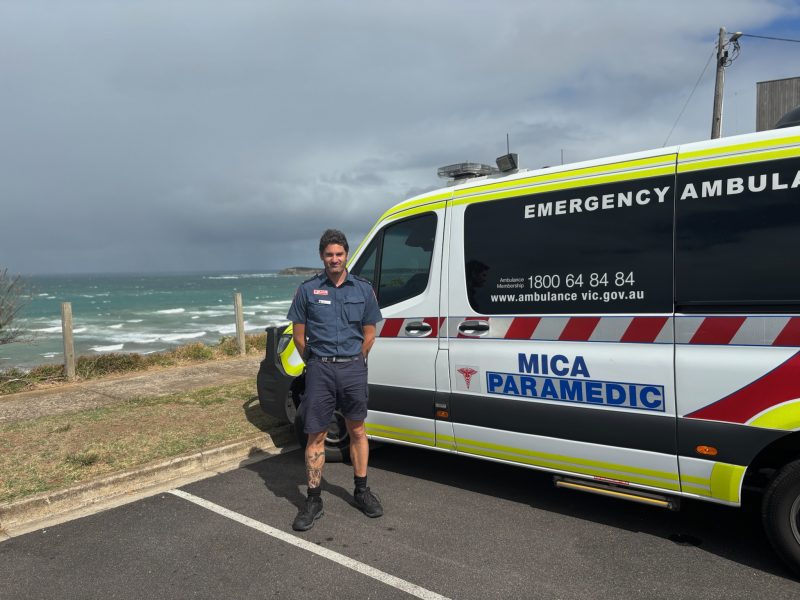After a stressful day at work, many people turn to their favourite television show or perhaps some comfort food to relax.
Geelong Mobile Intensive Care Ambulance (MICA) paramedic James Cini heads to the coast.
James is a freediver, which involves diving underwater with a single breath, pushing yourself to go as deep or as long as you can before surfacing.

James underwater.
He's held his breath underwater for five and a half minutes, reached a depth of 58 metres, swam alongside an array of marine life including tuna, dolphins and seals, and explored a WWII wreck.
James developed an interest in freediving after growing up around Anglesea and Aireys Inlet, spending plenty of time spearfishing and snorkelling with his dad and older brothers.
"Freediving is like hiking but your path is limitless, and your surroundings are 360 degrees of the underwater world," James said.
"The freedom of interacting with marine life and disconnecting from the noise of everyday life is incredible - it's like a form of underwater meditation.
"Freediving forces mindfulness: you have to focus on your breathing and your form to move effortlessly."
James took his first freediving course in Melbourne a decade ago, before undertaking further training in the Philippines and later completing a master's and instructor course in Bali.
In his spare time, James now not only dives himself, but teaches freediving in Queenscliff.
"I became an instructor because I wanted to show off our incredible coastline," he said.
"I would often have conversations with my friends and students who thought the only place worth diving was the Great Barrier Reef.
"In actual fact, the diversity of marine life on our coastline is richer than tropical climates.
"I get a real buzz seeing freedivers become transfixed when they see something truly incredible."
James is passionate about his home region of Victoria's surf coast and was able to begin his career with Ambulance Victoria (AV) in Anglesea.

James is a Mobile Intensive Care Ambulance (MICA) paramedic.
He joined in 2010 as an Ambulance Community Officer (ACO) - a First Responder employed on a casual basis to work on-call and trained to provide advanced first aid in rural and remote communities.
"I really enjoyed the role, especially being able to work in the community I grew up in," James said.
"The paramedics I worked with were a big inspiration and I developed a keen interest in anatomy and physiology.
"I was also drawn to the dynamic nature of the job - working outdoors and never knowing what the day would bring.
"It was a role that kept me on my toes and always learning."
Since his ACO days, James has become a qualified paramedic and recently completed his MICA internship, to become a qualified MICA paramedic.
"I've always had a passion for learning and challenging myself," he said.
"I noticed there were instances where I had reached the limits of my Advanced Life Support (ALS) scope of practice and felt like I couldn't provide the level of care that the patients required.






